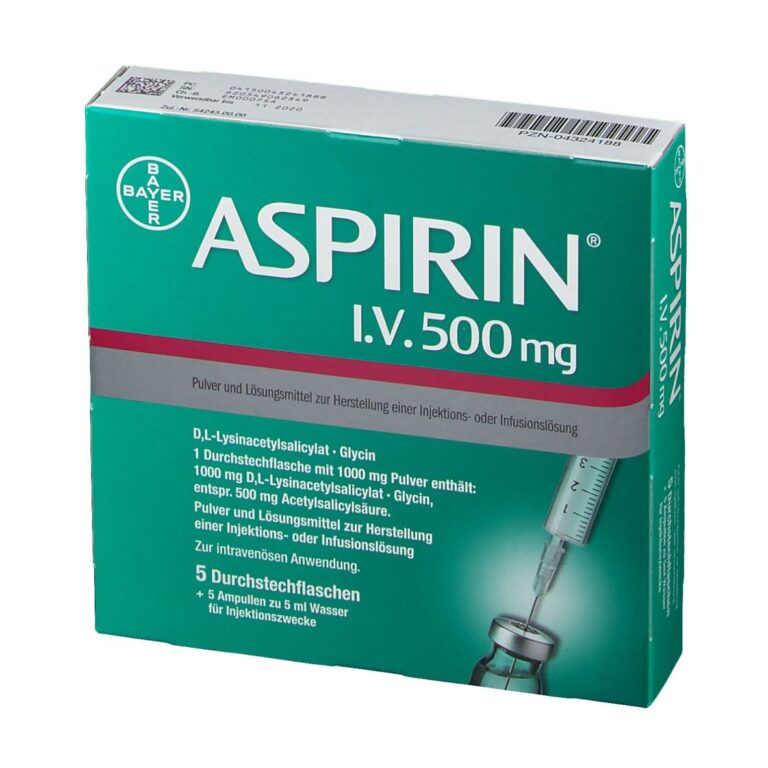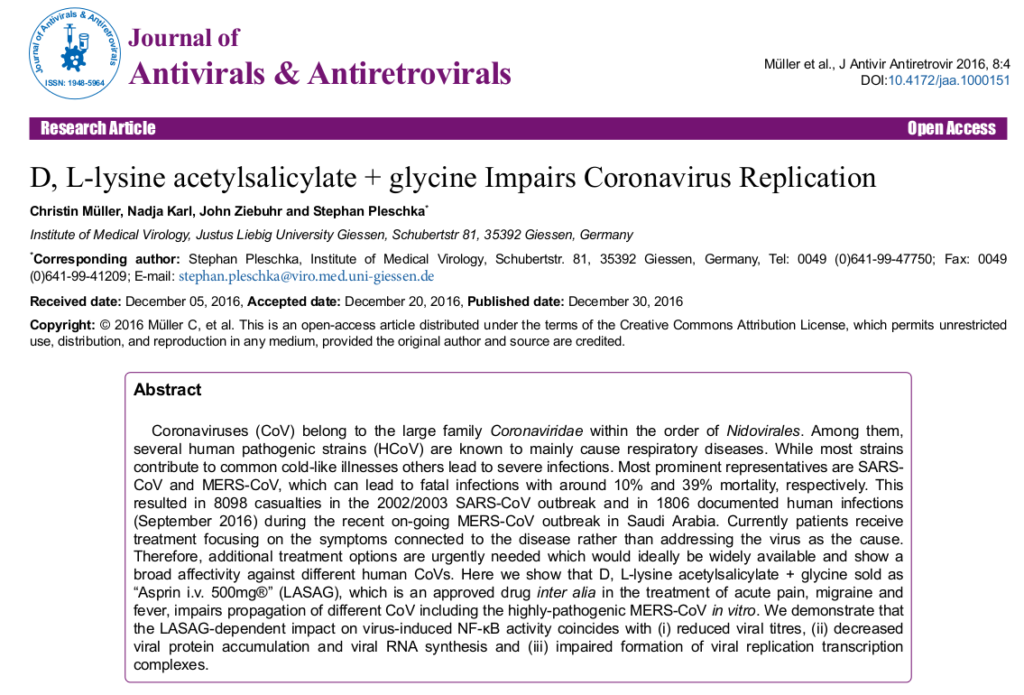Asprin i.v. does what COVID vaccines can’t

The Pfizer–BioNTech vaccines that the Canada, US and UK governments bought from Germany and are now using to conduct nation wide medical experiments on their citizens don’t prevent you or anyone else from becoming infected. “Even if somebody gets vaccinated, they may have an asymptomatic infection so they still could be infectious to others … Even when somebody is vaccinated, they need to protect themselves and others from spreading the infection” Ontario Associate Chief Medical Officer of Health Dr. Barbara Yaffe
Why? COVID 19 activates NF-kB pathway, like MERS and SARS-COV. SARS-COV virus has been studied in vitro and in mice and was shown to promote inflammatory mediators in vitro and in vivo through actions on NF-kB. Levels of NF-kB were higher in lungs of recombinant SARS (rSARS) infected mice. Only inhibitors of NF-kB improved survival of BALB/c mice and reduced rSARS-COV-induced inflammation, without influencing viral titers. NF-kB is specifically induced by SARS-COV and SARS-CoV-2 S protein to produce inflammatory mediators that are associated with ARDS in SARS in vitro. No COVID-19 vaccine inhibits NF-kB.
However, a readily available drug called LASAG inhibits virus-induced NF-?B activity, including the impaired formation of RTCs and/or DMVs in CoV-infected cells, leading to reduced viral RNA. This drug isn’t a new drug. It was available before and during the start COVID-19.
A 2016 study showed “D, L-lysine acetylsalicylate + glycine sold as ” Asprin i.v. 500mg® ” (LASAG), which is an approved drug inter alia in the treatment of acute pain, migraine and fever, impairs propagation of different CoV including the highly-pathogenic MERS-CoV in vitro” The 2016 study demonstrated that “the LASAG-dependent impact on virus-induced NF-?B activity coincides with (i) reduced viral titres, (ii) decreased viral protein accumulation and viral RNA synthesis and (iii) impaired formation of viral replication transcription complexes.”

“Here we show that LASAG, which is an approved drug, impairs propagation of HCoV-229E and of the highly pathogenic MERS-CoV in vitro . Our results demonstrate that inhibition of virus-induced NF-?B activity early in the viral replication cycle via LASAG coincides with (i) reduced viral titres, (ii) decreased viral protein accumulation and viral RNA synthesis and (iii) impaired formation of viral replication transcription complexes.” December 2016 Journal of Antivirals and Antiretrovirals DOI: 10.4172/jaa.1000151
“treatment of patients with a CoV caused severe acute respiratory syndrome via inhalation might allow achieving locally effective LASAG concentrations. Results from a clinical study investigating the effectiveness of inhaled lysine-acetylsalicylate in the treatment of asthma showed, that patients that received a dosage of 720 mg of inhaled LASAG twice a day over a two week period did not experience any significant side effects. Also, a dose escalation study of inhaled LASAG in humans for the clinical development of an antiviral treatment of IV infections demonstrated that inhalative doses up to 750 mg LASAG were safe and well tolerated without serious adverse events. Furthermore, administration of aerosolic ASA via intubation directly into the trachea resulted in increased survival rates of mice infected with a lethal dose of IV”
More recently, https://www.ncbi.nlm.nih.gov/pmc/articles/PMC7376326/
Acetylsalicylic acid (ASA) has both anti-inflammatory and antithrombotic effects. In addition, a significant ASA-mediated antiviral activity against DNA and RNA viruses, including different human coronaviruses, has been documented. The use of ASA in patients with different types of infections has been associated with reduced thrombo-inflammation and lower rates of clinical complications and in-hospital mortality.
In addition to the anti-inflammatory and antiplatelet effects of ASA, much solid evidence from in vitro and experimental models supports the capacity of ASA to reduce replication, propagation, and infectivity of several RNA-enveloped viruses, including human CoV-229E and MERS-CoV [20]. Also, ASA improved survival among patients with different types of infections, the latter conditions being characterized by overactivation of the inflammation cascade and enhanced platelet reactivity

You must be logged in to post a comment Login